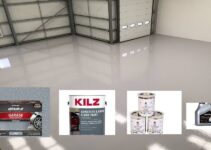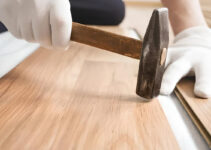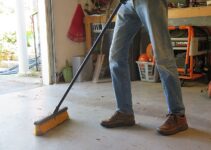Alternatives to Epoxy Garage Floor
When it comes to garage flooring, epoxy has long been a popular choice. Its durability, resistance to stains, and ease of cleaning make it an attractive option for many homeowners.
However, epoxy is not the only player in the game. There’s a range of alternatives to epoxy garage floors that offer unique advantages. I’ll explore these alternatives and help you decide which one is right for your needs. Let’s explore
What is Epoxy Garage Floor?
Epoxy garage floors are a coating system composed of epoxy resin and a polyamine hardener. This combination creates a rigid, durable, and chemical-resistant surface.
Epoxy is renowned for its ability to protect the underlying concrete and enhance the appearance of garage floors.
Why Consider Alternatives to Epoxy Garage Floor?
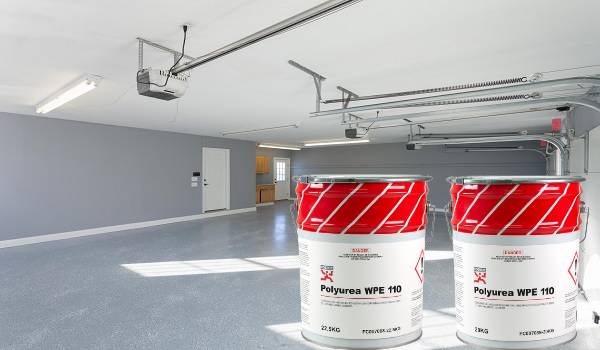
Epoxy is undoubtedly a robust option, but it may not be suitable for every garage. Here are a few reasons why you might consider alternatives:
- Cost: Epoxy can be expensive, especially when hiring professionals for installation.
- Application Complexity: Applying epoxy requires careful preparation and can be challenging for DIY enthusiasts.
- Drying Time: Epoxy coatings can take several days to cure, limiting garage use.
- Chemical Sensitivity: Epoxy can react adversely to certain chemicals, leading to damage over time.
Now, let’s delve into various alternatives to epoxy garage floors to see which one might be the perfect fit for your needs.
Types of Alternatives to Epoxy Garage Floor
Polyurea
Polyurea is a high-performance coating known for its remarkable strength and durability. It is well-suited for garage floors that endure heavy use and harsh conditions. Here’s a more detailed look at the pros and cons:
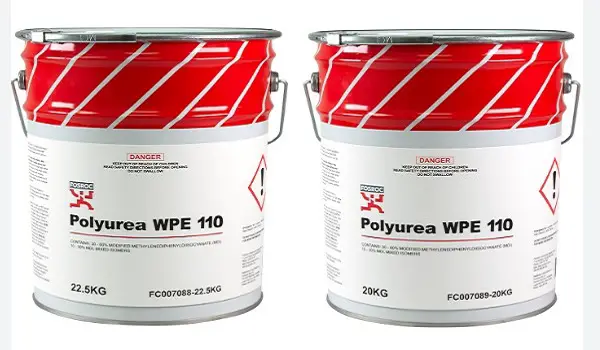
Pros:
- Exceptional Durability: Polyurea is incredibly durable, with superior resistance to abrasion and impact. It can withstand heavy loads and constant traffic, making it an excellent choice for high-traffic garages.
- Fast Curing: One of the standout features of polyurea is its rapid curing time. This allows for a quicker return to regular garage use after installation.
- High Chemical Resistance: Polyurea coatings are highly resistant to a wide range of chemicals, making them ideal for garages where spills and exposure to chemicals are common.
Cons:
- Higher Cost: While polyurea is a top-performing alternative to epoxy, it tends to be more expensive. However, the enhanced durability and other benefits it offers may justify the higher cost for many homeowners.
Urethane Cement
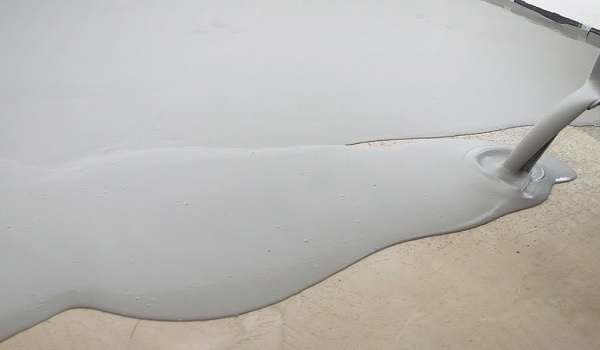
Urethane cement is a cost-effective solution that combines the durability of cement with the flexibility of urethane, making it a versatile and practical option for many garage owners. Let’s explore its pros and cons in greater detail:
Pros:
- Affordability: Urethane cement is a budget-friendly option compared to some other alternatives. This makes it an attractive choice for homeowners looking for cost-effective garage flooring.
- Excellent Impact Resistance: It offers excellent impact resistance, making it suitable for garages that experience heavy loads and constant traffic.
- Chemical Resistance: Urethane cement is resistant to chemicals, providing protection against spills and stains.
Cons:
- Professional Installation: Achieving the best results with urethane cement often requires professional installation, which can add to the overall cost.
Methyl Methacrylate (MMA)
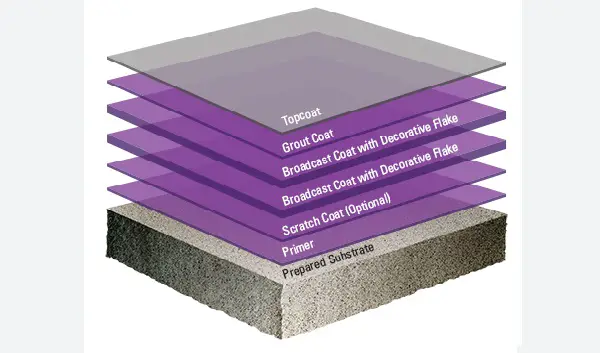
MMA coatings are known for their rapid curing time, making them a convenient choice for homeowners who need a quick solution. Let’s delve into the pros and cons:
Pros:
- Fast Curing: MMA coatings cure very quickly, reducing the downtime of your garage. This is especially advantageous for those who can’t afford a long installation process.
- Chemical Resistance: MMA is highly resistant to a wide range of chemicals, ensuring the long-term durability of your garage floor.
- Temperature Versatility: MMA coatings can be applied in various temperature conditions, which is a significant advantage in areas with extreme weather fluctuations.
Cons:
- Limited Color Options: MMA coatings may offer limited color and decorative options compared to some other alternatives. If you’re looking for a specific color or design, you might have to explore other choices.
Acrylic
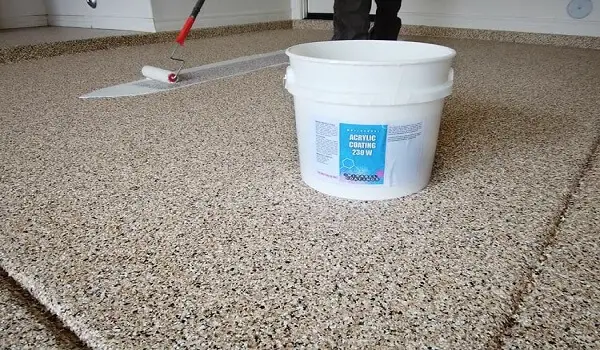
Acrylic coatings are known for their ease of application and cost-effectiveness. They provide a practical solution for those on a budget. Here are the pros and cons in more detail:
Pros:
- Easy Application: Acrylic coatings are relatively easy to apply, making them accessible to DIY enthusiasts. This can result in cost savings on installation.
- Affordability: Acrylic is a budget-friendly choice, allowing you to achieve a decent garage floor finish without breaking the bank.
- Quick Drying: Acrylic coatings dry quickly, reducing the downtime of your garage.
Cons:
- Lower Durability: While acrylic coatings offer several advantages, they may not provide the same level of durability as epoxy. In high-traffic garages, they may require more frequent maintenance.
Polyaspartic
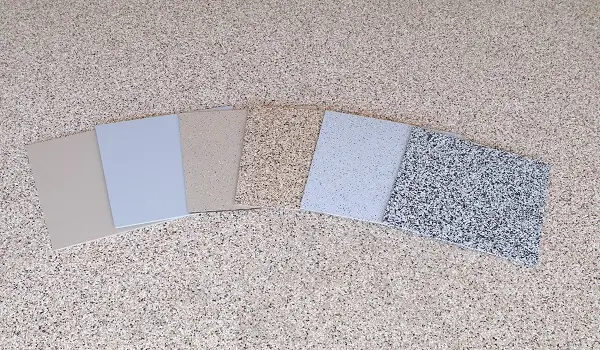
Polyaspartic coatings are known for their rapid curing times and exceptional durability, making them an appealing choice for many garage owners. Let’s explore the pros and cons in more detail:
Pros:
- Quick Curing: Polyaspartic coatings cure rapidly, allowing for a fast return to regular garage use.
- High Durability: They offer exceptional durability, with resistance to abrasion and impact, making them suitable for high-traffic areas.
- Chemical Resistance: Polyaspartic coatings are highly resistant to chemicals, protecting your garage floor from spills and stains.
Cons:
- Professional Installation Recommended: Achieving the best results with polyaspartic coatings typically requires professional installation, which may increase the overall cost.
Concrete Sealant
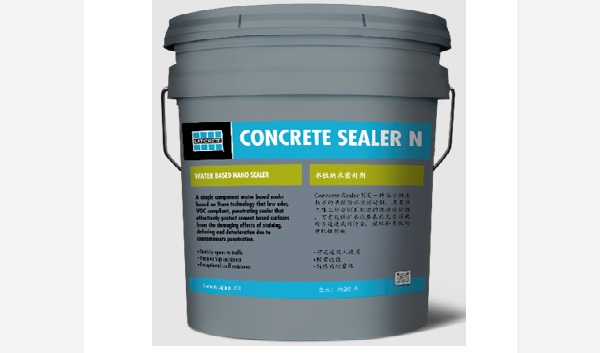
Concrete sealants are designed to penetrate the concrete surface and provide a protective barrier against stains and chemicals. While they may not offer the same decorative possibilities as some other alternatives, they excel in preserving the natural appearance of concrete. Let’s delve into the pros and cons in more detail:
Pros:
- Preserves Natural Appearance: If you want to maintain the authentic look of your concrete garage floor, a concrete sealant is an ideal choice. It enhances the natural aesthetics while protecting the surface.
- Affordability: Concrete sealants are often more budget-friendly than decorative options, making them a cost-effective solution.
Cons:
- Limited Decorative Options: Concrete sealants are primarily focused on protection and may not provide the same range of decorative choices as other alternatives.
Concrete Stain
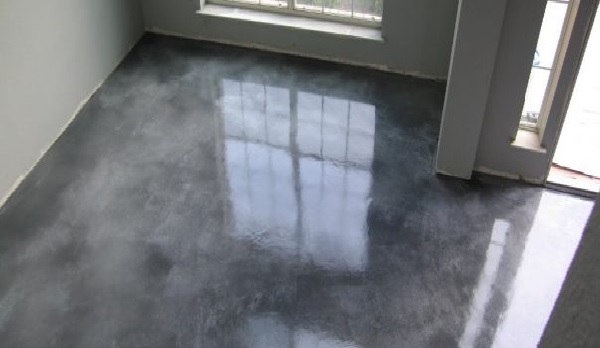
For homeowners seeking to add a decorative touch to their garage floor, concrete stains are an excellent option. These coatings come in various colors and can transform the appearance of your garage floor. Let’s explore the pros and cons in more detail:
Pros:
- Decorative Options: Concrete stains offer a wide array of color choices, allowing you to personalize your garage floor to your liking. They can create stunning patterns and designs.
- Affordability: Staining your concrete floor is often more budget-friendly than other decorative options, providing a cost-effective way to enhance your garage’s aesthetics.
Cons:
- Less Protection: While concrete stains offer decorative benefits, they may not provide the same level of protection as epoxy or other protective coatings. They are more suitable for garages with lighter usage.
Concrete Paint
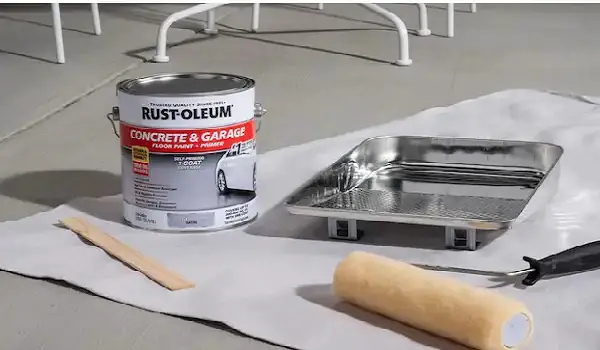
Concrete paint is another decorative option that offers both color and texture possibilities, providing versatility for those who desire a customized garage floor. Here’s a more detailed look at the pros and cons:
Pros:
- Decorative Options: Concrete paint allows you to choose from a wide range of colors and textures, giving you the creative freedom to transform your garage’s appearance.
- Affordability: It is generally a cost-effective choice for homeowners who want a decorative garage floor on a budget.
Cons:
- Frequent Maintenance: Concrete paint may require more frequent touch-ups and reapplications compared to protective coatings. It’s essential to be prepared for regular maintenance if you choose this option.
Concrete Pavers
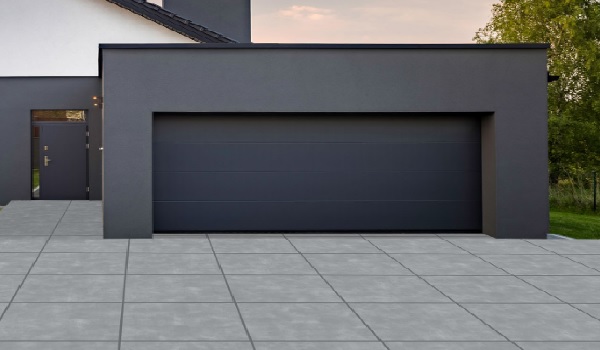
If your garage is situated outdoors or you have a carport, concrete pavers can be a fantastic choice. They offer both durability and an appealing design. Here’s a more detailed look at the pros and cons:
Pros:
- Durability: Concrete pavers are incredibly durable and can withstand outdoor conditions, including exposure to the elements and vehicular traffic.
- Aesthetics: They come in various shapes and sizes, allowing you to create visually appealing patterns and designs in your outdoor garage space.
Cons:
- Limited to Outdoor Applications: Concrete pavers are specifically designed for outdoor use and are not suitable for indoor garages.
Rubber Flooring
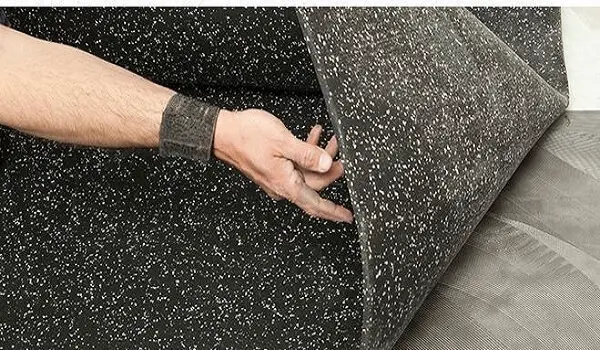
Rubber flooring is an ideal choice for high-traffic areas within the garage, providing cushioning, sound insulation, and slip resistance. Let’s explore the pros and cons in more detail:
Pros:
- Durability: Rubber flooring is highly durable and can withstand the constant wear and tear of high-traffic areas in your garage.
- Cushioning: It offers cushioning underfoot, making it a comfortable and ergonomic choice for those who spend time working in their garage.
- Sound Insulation: Rubber flooring can help reduce noise, making it suitable for garages where quiet is a priority.
Cons:
- Limited Aesthetic Appeal: While rubber flooring excels in functionality, it may not offer the same aesthetic appeal as decorative coatings or other flooring types.
Vinyl Flooring
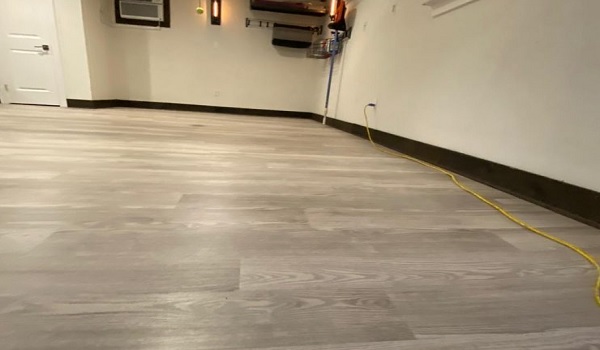
Vinyl flooring is a versatile option that is typically used in various areas of the home, such as kitchens and bathrooms. It is cost-effective and easy to install. Here’s a more detailed look at the pros and cons:
Pros:
- Versatility: Vinyl flooring can be used in a variety of areas in your home, making it a versatile choice for those who need a cost-effective and practical solution.
- Affordability: It is a budget-friendly option, allowing you to achieve a decent floor finish without significant expense.
- Ease of Installation: Vinyl flooring is often easy to install, which can result in cost savings, especially for those who prefer DIY projects.
Cons:
- Limited Suitability for Garages: While vinyl flooring is suitable for other parts of the home, it may not provide the same level of durability and resistance needed for a garage environment.
Cost of Alternatives to Epoxy Garage Floor
When considering alternatives to epoxy garage floors, one crucial factor that can influence your decision is the cost of the chosen flooring option.
The price range for these alternatives can vary significantly, so understanding the estimated costs per square foot is essential.
Keep in mind that these prices are approximate and can be influenced by various factors, including the size and complexity of your garage, labor costs in your area, and the specific brand and type of alternative you select.
Here’s a breakdown of the estimated price range per square foot for each of the alternatives:
| Alternative | Price Range per Square Foot |
|---|---|
| Polyurea | $5-$10 |
| Urethane Cement | $3-$7 |
| Methyl Methacrylate (MMA) | $7-$12 |
| Acrylic | $2-$5 |
| Polyaspartic | $4-$8 |
| Concrete Sealant | $1-$3 |
| Concrete Stain | $1-$2 |
| Concrete Paint | $1-$3 |
| Concrete Pavers | $5-$10 |
| Rubber Flooring | $2-$5 |
| Vinyl Flooring | $1-$3 |
Please note that these are general price ranges and can fluctuate based on market conditions, location, and the specific characteristics of your garage.
How to Install Alternatives to Epoxy Garage Floor
The installation process varies depending on the alternative you choose. Some options, like acrylic or vinyl, are relatively simple for DIY enthusiasts.
However, more complex coatings like polyurea or urethane cement may require professional installation to ensure optimal results. Always follow the manufacturer’s instructions and, if necessary, consult with an expert.
Conclusion
There are numerous alternatives to epoxy garage floors, each with its unique set of advantages and disadvantages.
The right choice for you depends on your budget, usage, aesthetic preferences, and desired level of durability.
Make an informed decision and enjoy a garage floor that perfectly suits your needs. When exploring alternatives to epoxy garage floor, you’ll find a range of options, each with its own set of pros and cons.
Carefully evaluate your needs, budget, and preferences to make the best choice for your garage flooring.
Whether it’s the durability of polyurea, the affordability of acrylic, or the decorative appeal of concrete stain, there’s a solution that fits your requirements.
